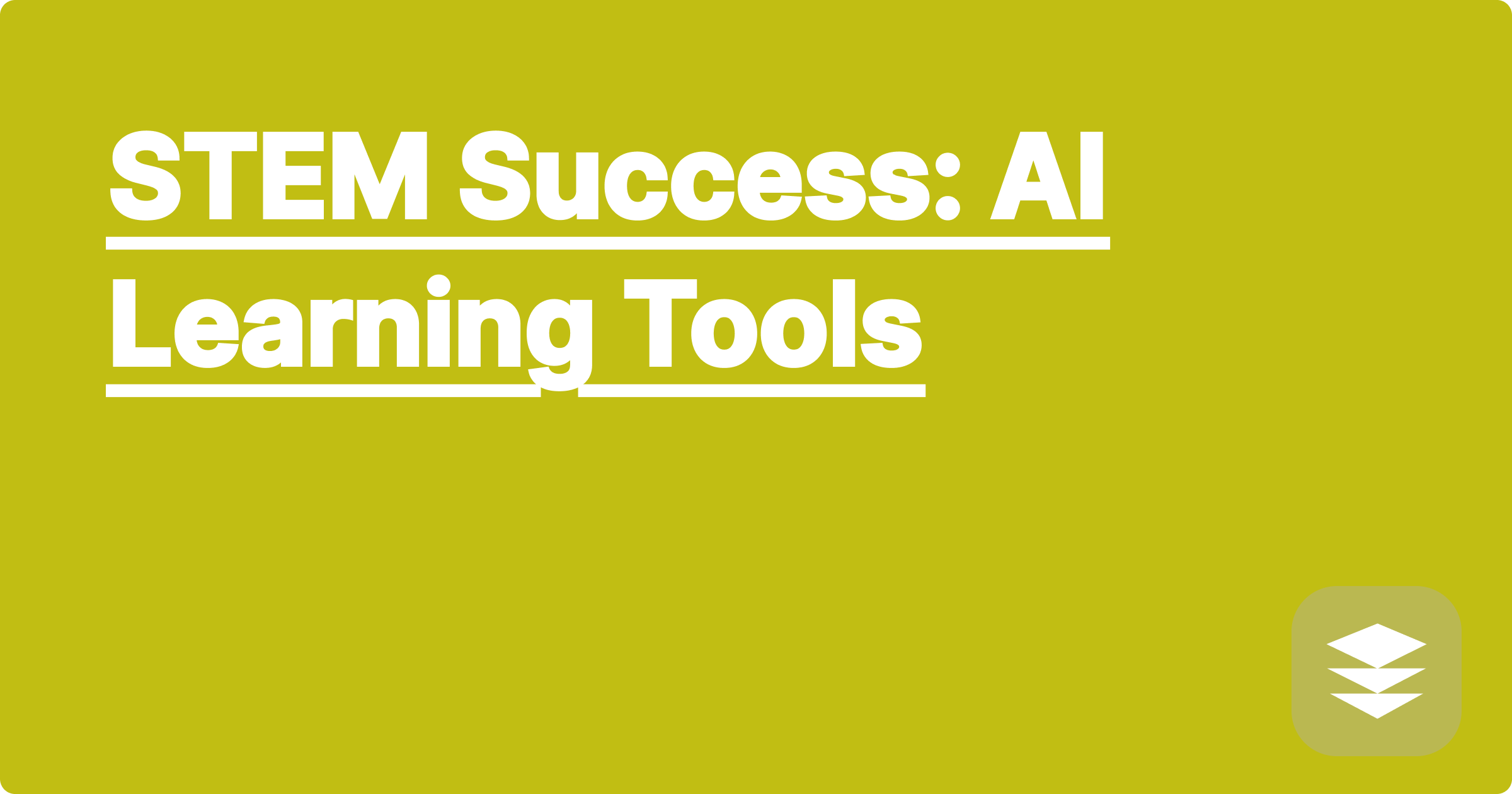
The ever-expanding landscape of STEM fields presents a formidable challenge for students and researchers alike. The sheer volume of information, the complexity of concepts, and the rapid pace of advancements can feel overwhelming. Artificial intelligence (AI) offers a powerful set of tools to navigate this challenging terrain, providing innovative solutions for learning, research, and problem-solving. AI can assist with everything from understanding complex theories to generating code and analyzing data, ultimately empowering STEM practitioners to achieve greater success.
This matters significantly for STEM students and researchers because leveraging AI tools can significantly enhance their learning and research capabilities. These tools can provide personalized learning experiences, automate tedious tasks, offer new perspectives on complex problems, and accelerate the pace of discovery. By embracing AI, STEM professionals can not only improve their understanding of core concepts but also develop crucial skills for the future of their fields. This blog post will explore how AI-powered learning tools can be effectively utilized to overcome challenges and achieve greater success in STEM disciplines.
STEM fields often require grappling with complex mathematical equations, intricate scientific concepts, and vast datasets. Traditional learning methods can sometimes struggle to keep up with the demands of these subjects. Students often face difficulties in visualizing abstract concepts, applying theoretical knowledge to practical problems, and efficiently managing the sheer volume of information they encounter. Researchers, similarly, can find themselves bogged down by time-consuming tasks like literature reviews, data analysis, and code generation, hindering their ability to focus on core research questions. This creates a need for more efficient and effective learning and research tools that can help STEM practitioners navigate these challenges.
AI-powered tools like ChatGPT, Claude, and Wolfram Alpha offer innovative solutions to these challenges. ChatGPT and Claude, for example, can be used to explain complex concepts in simpler terms, provide alternative explanations, and even generate practice problems with solutions. Wolfram Alpha excels at computational tasks, allowing users to solve complex equations, visualize mathematical functions, and access a vast knowledge base of scientific facts and formulas. These tools can be used in conjunction to create a powerful learning and research ecosystem.
To begin using these AI tools effectively, start by clearly defining the problem or concept you want to explore. For example, if you're struggling with understanding the concept of derivatives in calculus, you can input a query like "Explain derivatives in simple terms" into ChatGPT or Claude. These tools will provide you with a clear explanation, often accompanied by illustrative examples. Next, you can use Wolfram Alpha to visualize the derivative of a specific function. Simply input the function, and Wolfram Alpha will generate a graph of its derivative, allowing you to see the relationship between the function and its rate of change. Finally, you can use ChatGPT or Claude to generate practice problems related to derivatives, further solidifying your understanding of the concept.
Consider a student trying to understand the physics behind projectile motion. They could ask ChatGPT to "Explain the equations of motion for a projectile." ChatGPT can provide a breakdown of the equations, explaining the variables involved (like initial velocity, angle of projection, and gravitational acceleration) and their relationships. Then, using Wolfram Alpha, the student could input specific values for these variables, such as "projectile motion with initial velocity 20 m/s, angle 45 degrees." Wolfram Alpha would then calculate the trajectory, maximum height, and range of the projectile, even visualizing the trajectory graphically. The student could further explore the concept by asking ChatGPT to generate practice problems involving different scenarios, like calculating the launch angle required to hit a target at a specific distance.
Another example involves a researcher investigating the properties of a specific material. They could use Wolfram Alpha to access data on the material's physical properties, such as its density, melting point, and thermal conductivity. They could then use ChatGPT or Claude to summarize recent research papers on the material, identifying key findings and open questions. This information can then be used to inform their own research, helping them design experiments and interpret their results.
For effective use in STEM education and research, treat these AI tools as collaborators, not replacements for critical thinking. Always verify the information provided by these tools with reputable sources and use your own judgment to interpret the results. Experiment with different prompts and phrasing to get the most relevant and helpful information. Furthermore, explore the advanced features of these tools, such as Wolfram Alpha's ability to perform symbolic computations and ChatGPT's ability to generate different creative text formats. By actively engaging with these tools and incorporating them into your workflow, you can significantly enhance your learning and research capabilities.
To conclude, AI-powered learning tools like ChatGPT, Claude, and Wolfram Alpha offer a powerful suite of resources for STEM students and researchers. By understanding how to effectively utilize these tools, you can overcome challenges, deepen your understanding of complex concepts, and accelerate your progress in your chosen field. Begin by exploring these tools and experimenting with different applications. Integrate them into your study and research routine, and discover how they can empower you to achieve greater success in the exciting world of STEM.
Physics Help: AI Problem Solver
Engineering AI: Design Optimization
STEM Success: AI Learning Tools
Data Science AI: Analysis Boost